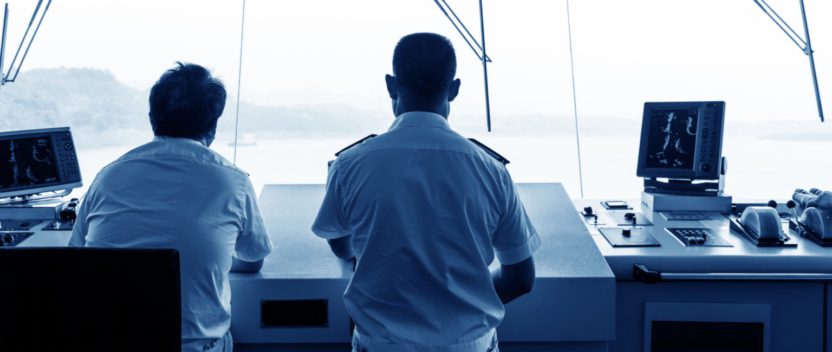Weighing up risks in container shipping
Being careful what you wish for is axiomatic in the maritime industry and especially when it comes to the effect of regulation on the market. From the single hull tanker ban to the Ballast Water Management Convention, the revision of Marpol Annex VI and the conformity of Common Structural Rules to IMO Goal Based Standards, unforeseen consequences are everywhere.
Twice in the space of two months the shipping industry has had confront the possibility of a ‘hard stop’ to its daily business. The first – had the IMO Maritime Safety Committee not found CSR in compliance with GBS – was thankfully averted.
The second, the introduction of the amendment of the SOLAS Convention requiring the gross mass of every container to be verified by weighing before they can be loaded comes into force on July 1.
VGM is the result of consultation by the IMO after several years of campaigning by a number of industry groups. Inaccurately declared container weight has caused container stacks to collapse and presents a risk of injury to personnel, damage to equipment and to the cargo. It has also been cited as an aggravating factor in some major vessel casualties. By amending SOLAS, IMO hopes vessel operators will be able to make safer stowage decisions.
So much for the rules but even if one’s taste runs shy of the apocalyptic, it is safe to say there will be some bumps in the road once VGM takes effect. This is not least because as of June 1, only 20 of the 170 signatories to SOLAS had published their implementation strategies.
As so often in the past, the industry is being left to sort out the details in practice, but shippers, terminals and lines are worried – and the shippers most of all.
Global Shippers’ Forum general secretary Chris Welsh told a recent International Cargo Handling and Co-ordination Association seminar in Antwerp that failure by the lines and terminals to have facilities in place could mean a failure of the entire maritime supply chain.
Without a VGM certificate, lines could refuse to load booked boxes from even their best customers and so they should; to proceed would put them out of compliance with one of the four pillars of maritime regulation.
It is clearly vital therefore that shippers understand what they need to do ahead of the rules coming into force and Welsh added that shippers might need some ‘tough love’ in the form of refusals to pre-booked terminal delivery slots unless a VGM is provided. “We have to speak the truth, as we don’t want boxes stopping the supply chain,” he said.
Sitting just behind this scenario are some other realities, which the industry has also so far failed to confront.
The first is that the relationship between shippers and carriers is far from rosy at the best of times. The volatility of spot rates has made the relationship between contracted and spot shipments subject to huge basis risk and lines complain that shippers book slots for cargo that regularly fails to appear.
On the flip side, so poor are average annual slot rates that the lines are hardly in a position to turn down business – though this does happen on occasion. The lines called for the establishment of VGM for sound safety reasons but its introduction means they need to improve communication with their customers as well as their notoriously patchy levels of service.
Despite the fact that the responsibility for providing a VGM is placed on the shipper, the message given by the IMO is that all parties involved should work together towards compliance.
Many shippers are likely to assume that weighing facilities are in place at the terminals they wish to use. If there are not – or in cases where the lines refuse to load the containers – there are likely to be additional costs for the terminal operator.
The SOLAS amendment and the IMO Guidelines do not lay out specific deadlines for the shipper to submit a weight certification, leaving it to the parties in the supply chain to make their own arrangements.
In a series of articles published on the website of law firm Clyde and Co, partners Elizabeth Turnbull and Marcia Perucca note that in addition to the practical issues of compliance, all three main parties have a paperwork headache that should by now have been addressed.
Shippers must evaluate contract terms to take into account the new obligations and the allocation of costs and liabilities. Terminals will need to review the adequacy of existing terminal service and haulage agreements as well as standard terms of business, while carriers should evaluate their current service agreements, terms and conditions, bills of lading and tariffs to protect themselves against delayed shipments and additional costs associated with failure to provide a VGM.
As in previous scenarios, the likelihood of world trade coming to a halt on July 1 is unlikely, though there will be issues to resolve. The biggest might be how future regulation is shaped to avoid a repeat.
At the Global Liner Shipping event in London earlier this year, Bill Doyle, Commissioner with the US Federal Maritime Commission pointed to a communication lapse between the ocean carriers, shippers and regulators when the rules were being created. “If somebody has got to be regulated that person needs to be at the table. If a responsibility is going to be put on an entity or an entire service or an entire industry, they need to be in the room,” he observed.
Doyle declared himself optimistic that the industry would find workable solutions but added wryly, “the shippers and the ocean carriers quite frankly need to start talking to their lawyers and talking to the operational level and figure this thing out”.


